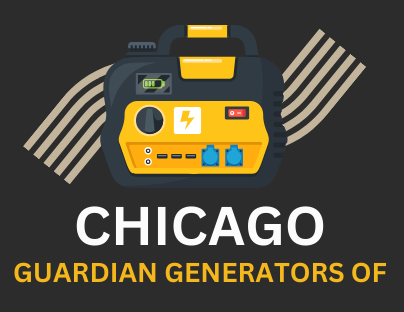Whole House Generators in Grant Village IL
A whole house generator is a robust backup power system designed to provide electricity to your entire home during an outage. Unlike portable generators, which only power select appliances or areas, a whole house generator is wired directly into your home’s electrical system, allowing it to support all essential devices and systems, from heating and cooling units to refrigerators and lights. These generators automatically kick in when a power loss is detected, ensuring that your home remains fully functional even during extended outages.
Importance of Having a Whole House Generator
Weather can be unpredictable, having a whole house generator is more than a convenience—it's a necessity. Power outages can occur due to severe storms, high winds, or other unexpected events, leaving your home vulnerable to discomfort and potential hazards. A whole house generator provides peace of mind, ensuring that your home stays warm in the winter, cool in the summer, and that critical systems like security alarms and medical devices remain operational. It also helps prevent costly damages that can result from power loss, such as spoiled food or frozen pipes.
Types of Whole House Generators
Whole house generators come in various types, each suited to different needs:
- Standby Generators: These are the most common type of whole house generators, permanently installed outside your home and connected to a fuel source like natural gas or propane. They start automatically during an outage and can power your entire home.
- Portable Generators with Transfer Switches: Though not true whole house generators, these systems can power most of your home’s essential circuits when connected to a transfer switch.
- Solar-Powered Generators: These generators use solar panels to generate electricity and store it in batteries for use during an outage. While environmentally friendly, they may require a larger initial investment and space for panels.
- Liquid-Cooled Generators: Ideal for larger homes, these generators are more powerful and durable, using liquid cooling systems similar to car engines. They are best for homes with high power demands.

Key Considerations When Choosing a Whole House Generator
When selecting a whole house generator for your home in Grant Village, IL, several factors should guide your decision:
- Power Needs: Consider the total wattage your home requires during an outage. This includes all essential appliances and systems you want to keep running.
- Fuel Type: Decide whether you prefer natural gas, propane, or diesel. Each has its pros and cons in terms of availability, cost, and storage.
- Size and Placement: The size of your generator and where it will be installed are crucial. It must be large enough to meet your needs but also fit within the available space around your home.
- Noise Level: Some generators are noisier than others. Check the decibel rating to ensure the noise level won’t be disruptive.
- Budget: Your budget will also influence your choice. While larger, more powerful generators cost more, they may offer better long-term reliability and performance.
Installation Process
Installing a whole house generator is a complex process that should be handled by professionals. The installation begins with a site survey to determine the best location for the generator. It should be placed on a stable surface
away from windows and doors to minimize noise and exhaust fumes. The next step involves securing permits from local authorities, which is necessary to ensure that the installation meets safety codes and regulations.
Once the permits are in place, the generator is delivered and positioned on a concrete or composite pad. An automatic transfer switch is installed to connect the generator to your home’s electrical system. This switch detects power loss and activates the generator, ensuring a seamless transition to backup power. The generator is then connected to a fuel source, typically natural gas or propane, which requires additional piping if not already available. After all connections are secured, the system undergoes rigorous testing to ensure it operates correctly under various conditions.
Maintenance Tips for Longevity
To keep your whole house generator in top working condition and extend its lifespan, regular maintenance is essential. Here are some tips:
- Routine Inspection: Regularly check the generator for any signs of wear or damage, such as frayed wires or rust. Ensure that the unit is clean and free of debris.
- Oil Changes: Like a car engine, your generator requires regular oil changes. Check the oil level monthly and replace it according to the manufacturer’s schedule, usually after every 100 hours of use.
- Battery Checks: The battery is critical for starting your generator. Test it regularly to ensure it’s fully charged and replace it every 2-3 years.
- Exercise the Generator: Run your generator for about 20-30 minutes every month, even if there hasn’t been a power outage. This keeps the engine parts lubricated and ensures the system is ready to operate when needed.
- Professional Servicing: Schedule annual professional inspections to check the entire system, including fuel lines, transfer switches, and the generator’s engine. Professionals can also update software and firmware to keep your generator running efficiently.
Cost Considerations
The cost of a whole house generator varies based on several factors, including the size of your home, the type of generator, and the complexity of the installation. On average, a whole house generator can range from $5,000 to $15,000, including installation. Here’s a breakdown of the potential costs:
- Generator Unit: The price of the generator itself is a significant portion of the total cost, typically ranging from $3,000 to $10,000, depending on the brand and power capacity.
- Installation: Professional installation costs can vary based on the complexity of the setup, ranging from $2,000 to $5,000. This includes labor, materials, and permits.
- Fuel Costs: If you choose a generator that runs on propane or natural gas, you’ll need to consider the cost of fuel. Propane is generally more expensive than natural gas, but the latter requires a direct connection to a gas line, which could add to installation costs if one isn’t already present.
- Maintenance Costs: Ongoing maintenance costs include oil changes, battery replacements, and annual inspections. Budget around $200-$500 per year for regular maintenance.
Safety Precautions
Safety is paramount when installing and operating a whole house generator. Here are some key precautions to keep in mind:
- Proper Ventilation: Generators produce carbon monoxide, a deadly gas that can accumulate if the unit is not properly ventilated. Ensure the generator is installed at least 5 feet away from windows, doors, and vents.
- Regular Testing: Regularly test your generator to ensure it functions correctly. This includes testing the automatic transfer switch to confirm it seamlessly switches power during an outage.
- Fuel Safety: Store fuel safely, away from the generator and other potential fire sources. Ensure propane tanks are upright and securely connected, and check for leaks regularly.
- Professional Installation: Always have your generator installed by licensed professionals to ensure it meets safety codes and functions correctly during an emergency.
- Emergency Shutdown Procedure: Familiarize yourself with the emergency shutdown procedure in case you need to turn off the generator quickly. This knowledge can prevent accidents and further damage to the system.
What We Offer
We specialize in providing top-of-the-line
whole house generators in Grant Village, IL. Our comprehensive services include expert consultation, where we help you determine the best generator for your home based on your power needs and budget. We handle everything from securing the necessary permits to professional installation, ensuring your system is up and running smoothly. Our team is also available for routine maintenance and emergency repairs, ensuring your generator remains reliable for years to come. With our commitment to quality and customer satisfaction, you can trust us to keep your home powered and safe during any outage.
- Residential Generators
- Commercial Generators
- Portable Generators
- Electric Generators
- Propane Generators
- Solar Generators
- Generator Repairs
- Generator Maintenance
- Generator Parts
Don’t wait until the next storm hits to secure your home’s power supply. Contact us today to learn more about our whole house generator services in Grant Village, IL. Our friendly and knowledgeable team is here to answer any questions you may have and to schedule a consultation at your convenience. Let us help you find the perfect backup power solution to keep your home running smoothly, no matter what the weather brings.
